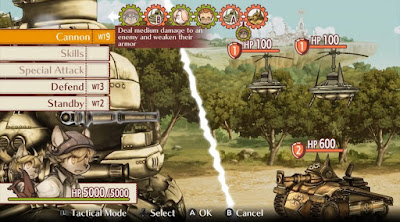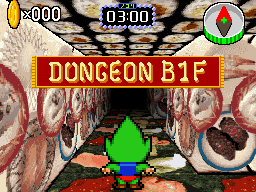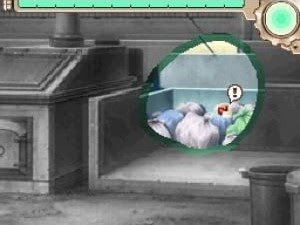The vast majority of the games I played in 2022 were played on my cherished, Splatoon 2-colored Nintendo Switch.
There's nothing necessarily wrong with that, but I usually prefer to spread my gaming love among several systems, both new and old.
As such, I want to do more than just play Switch games in 2023. I also want to play the following:
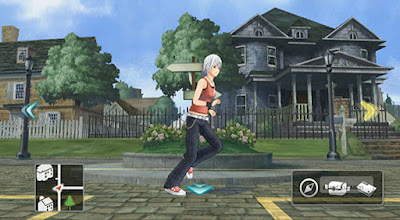 |
| Another Code: R |
Another Code: R (Wii)
I'm one of those nerds who adored developer CiNG and all of the brilliant games it managed to release during its relatively short lifespan. Or at least I've adored all of its games that I've tried to date, which includes the original Another Code (Trace Memory in North America), Hotel Dusk, Last Window, and Again. I've yet to play the company's lone PS2 effort, Glass Rose, or the Wii-based follow-up to the first game I mentioned here, Another Code: R. Although I don't see myself tracking down and starting through Glass Rose anytime soon, I'd like to finally check out Another Code: R in 2023. I love its art style and I similarly adore the Nintendo Wii, so I'm struggling to see how it won't quickly find a place in my heart alongside the other CiNG products I've experienced.
E.X. Troopers (3DS)
So many people I respect regularly sing the praises of E.X. Troopers. I took the first step to finding out if it's my cup of tea, too, by buying a copy of the 3DS version a few years ago, but I've yet to even slip its cartridge into my 3DS. I'll be honest here: I'm worried its gameplay won't thrill me the way it does so many others, but I want to give it a solid go all the same.
Final Fantasy Crystal Chronicles: The Crystal Bearers (Wii)
Like many folks, I was miffed when Square Enix announced this Final Fantasy spinoff for the Wii rather than a mainline entry or even an actual Final Fantasy Crystal Chronicles sequel that iterated on the original's ARPG gameplay. Now, though, pretty much everything about The Crystal Bearers appeals to me, from its dashing protagonist to its bizarre gameplay.
Labyrinth of Galleria: The Moon Society (Switch)
I ignored this game's predecessor, Labyrinth of Refrain: Coven of Dusk, for years despite generally loving Nippon Ichi Software releases because its gigantic parties of 40 or so members seemed both ridiculous and overwhelming. Once I got to playing it, though, I learned it wasn't too much to handle at all, and actually was an interesting departure from the norm. I've heard this follow-up treads similarly unique ground, so I plan to dive into it as soon as a copy is in my greedy hands in mid-February.
 |
| Me & My Katamari |
Me & My Katamari (PSP)
Full disclosure: although I thoroughly love the original Katamari Damacy game, I've never played any of its sequels. I've bought most of them, but never even booted them up. That includes this PSP release. I'm pretty sure I've said here before that I would try to play Me & My Katamari, but I failed to follow through on it. Hopefully I can get off my butt in that regard this time. I've heard it's worth the effort, even if it doesn't exactly live up to the lofty expectations set by pair of PS2 releases that preceded it.
Popolocrois (PSP)
I have a feeling this isn't the first time I've publicly vowed to play this PSP game, too. Like Me & My Katamari, I've avoided Popolocrois for a few reasons, with the main one being that word of mouth on it isn't all that positive. Still, I've wanted to experience some version of this game ever since I first became aware of it decades ago (via the Japan-only PlayStation title from 1996), so I should probably get it over with and see if it's been worth all the fuss.
Professor Layton vs Phoenix Wright Ace Attorney (3DS)
Why I didn't buy and try this curious crossover when it first came out is beyond me. I've thoroughly enjoyed every Professor Layton game I've played to date, and the same is true of the Ace Attorney games I've played, so of course I'd enjoy this one, too, right? I suppose it's possible I won't, but I'm willing to chance it. If only copies didn't cost so blasted much these days.
 |
| Professor Layton vs Phoenix Wright Ace Attorney |
Romancing SaGa (Super Famicom)
I've attempted to play the original version of Romancing SaGa a few times over the years. At least a couple of those attempts were made using an actual Super Famicom cart of the game, while the rest involved a ROM of the same. I'm fairly sure all took place before any worthwhile English walkthroughs existed. Now that one does, and now that a complete English fan translation can be found online, too, I'm ready to try again. I know I could just play the more modern Minstrel Song remake, but for now I want to tackle the original. Don't worry, I own a copy of the Minstrel Song remaster that released recently, so I'll fall back on that if needed.
Tengai Makyou II: Manji Maru (DS)
I was one of those odd kids who proudly owned a TurboGrafx-16 back when it was current (and a distant third option for game fans after the SNES and the Genesis). I even owned one of those devastatingly expensive TurboGrafx-CD units. One of the games I bought to put the latter device to use was Tengai Makyou II: Manji Maru. I was obsessed with it at the time. It looked unlike any RPG I'd ever laid eyes on up to that point. The battle scenes, in particular, blew me away with their dynamic animations. Unfortunately, the language barrier proved to be far too massive for my puny brain to overcome. Thankfully, walkthroughs are a thing now (they weren't then), so I'll refer to as many as are needed if I tackle Tengai Makyou II's Nintendo DS port this coming year.
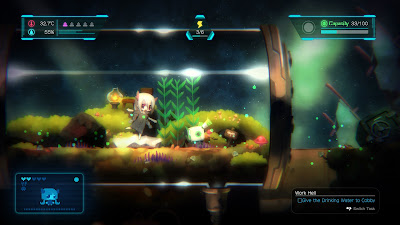 |
| Void Terrarium 2 |
Void Terrarium 2 (Switch)
The first Void Terrarium was one of my three favorite games of 2020. That game daringly combines a futuristic roguelike (one of my favorite genres, currently) with a human Tamagotchi. Like many such NIS mashups, it sounds like an obscene mess on paper, but seems brilliant once you play it. To be honest, previews of Void Terrarium 2 have me worried it will be disappointingly derivative (it often looks like a retread of the first game), but those who have played the Japanese release swear it's an honest-to-goodness sequel, so I'll take them at their word and fervently anticipate its North American launch in late February.



